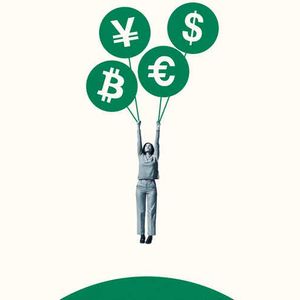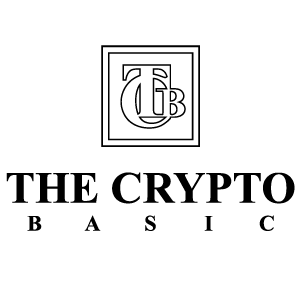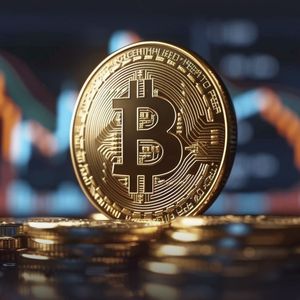Summary Inflows into Cryptocurrency EFTs are on the rise. Can bitcoin's climb continue? How bitcoin's rise is impacting interest in cryptocurrency ETFs. An uptick of inflows into U.S.-listed cryptocurrency ETFs is helping to push the price of bitcoin higher. Andres Rincon, Managing Director and Head of ETF Sales and Strategy at TD Securities, discusses the state of the crypto ETF market and potential opportunities and risks for investors. Transcript Greg Bonnell - A lot of excitement in the markets around the launch of spot Bitcoin exchange-traded funds in the United States. But how is the space evolving since the launch in January? Joining us now to discuss that and some other things, Andres Rincon, Managing Director and Head of ETF Sales and Strategy at TD Securities. Andres, it's great to have you back on the program. Andres Rincon - Thank you for having me. Greg Bonnell - All right, so when we launched in January -- I should say, they launched their spot Bitcoin ETFs south of the border in January -- we had you on for that initial reaction explanation of the space. We've got a few months under our belt. How is the space evolving? Andres Rincon - It's been really, really fascinating. So as we talked about at the time, there's been 11 -- at the start, 11 Bitcoin ETFs that were approved and were launched in the US. And it's been a lot of activity. We've seen a lot of excitement, a lot of news. It's been on the news consistently in the US. Really, what we're seeing is new money coming into the space, which is very interesting. We've seen some money flow from existing crypto products that weren't already in the space into the ETF structure, but we've also seen a lot of new money coming to the space. And that's what's really, in my opinion, exciting. Now that you have behemoths like BlackRock and Fidelity putting their name behind the crypto ETF, you also have a lot of advisors now and other investors saying, OK, well, maybe this is a little bit more legitimate, and maybe I should allocate a little bit into these funds. And the evolution really has been that now we're seeing advisors and investors put a small allocation into their traditional portfolio. So let's say 3% or 5%, or what perhaps was your gold exposure before now is your crypto exposure. So we're seeing a little bit more of this transition. And what's really interesting is that this was expected but really unintended. What I mean by that is that the SEC was basically forced to approve many of these ETFs. Greg Bonnell - That was the big caveat, right? They weren't saying, we endorse these investing products. They simply said, there was a decision, and here we are. Andres Rincon - That's right. So Gary Gensler was very clear. There's a lot of risks. He doesn't necessarily endorse these. But here you are, basically. So now you have all these ETFs with big names behind them, so they're trading a lot more. Since then, we've also seen a lot of different filings for other types of crypto ETFs. Greg Bonnell - Because Bitcoin isn't the only cryptocurrency in the world. Andres Rincon - That's right. You have ether ETFs. And what's really fascinating is that, just as a quick reminder, we have crypto ETFs here in Canada. We have both Bitcoin ETFs and ether ETFs, which the US does not have today. We do suspect that the United States will get ether ETFs in the not-too-distant future. I think the SEC will take its time on that one. But given what we've seen in Europe, for example, we do suspect that we're going to see ether and other cryptocurrencies eventually come on board. The reason we haven't seen that in Canada past ether is because one of the restrictions is being that you need to be able to trade futures in the actual cryptocurrency to list an ETF, and those restrictions are not necessarily there in the US. So I suspect there's going to be a lot more of that in the US. So right now, we're going to next get ether and perhaps other things in the US. Greg Bonnell - So clearly you've seen the interest in the space. Remind us of the risks around some of these products when people don't truly understand what the product is. Andres Rincon - Well there -- and I'm speaking on behalf of the SEC, the SEC has already talked quite a bit about some of the risks. So if you look at what they've pointed to, a couple of the risks is that there's a lot of manipulation in the cryptocurrency itself. And most importantly, the SEC cannot control that market. It's not a regulated market. And because they can't regulate it, they feel uncomfortable as to what happens in those markets, to some respect. They see there's a lot of flow and money going into that space that they can't regulate, either, from a money laundering point of view. So there is a lot of conversations there. But there's also the concern of custody at the end of the day. These are digital assets. And although the custodian for all these ETFs is heavily regulated, they're still digital. And it's a new -- I'll call it process, compared to the traditional custody model. So there are many risks to these ETFs. And obviously, there's a lot of volatility in cryptocurrency, so there's obviously the risk of loss for many of these ETFs. Greg Bonnell - Definitely an interesting space. So crypto, a good run this year. It's been a bit shaky, but it's sort of been rising again. How about some other commodities you're seeing in the markets, like the commodities ETFs? What's the market like there for that? Andres Rincon - So similar to crypto, that's done really, really well from a performance point of view. So Bitcoin, as we've seen, has done really well. Other areas have done very well is commodities. So you've seen the price of gold continues to skyrocket. Oil continues to skyrocket. And what's really interesting is that commodities have been really, really resilient during times of distress. So if you look at COVID, you look at the Ukraine-Russia conflict, the current conflict in Iran, in the waters, so a lot of that is actually pushing these commodities higher, and not just these two, gold and oil, but also across the board. Despite that, though, the allocation to commodities is relatively low these days. So if you look at flows in commodity ETFs in the US and Canada last year, it was fairly muted, to be honest. This year it's slightly up, but last year, actually, in Canada, it was slightly down. And it's interesting to see how these assets have done so well, but the allocations have been fairly muted. And given they are resilient and they do diversify a portfolio, it's one area that's often overlooked. And you have gold ETFs. You have oil ETFs. You have base metal ETFs. You have agricultural ETFs. You have many different areas they can invest here, in both Canada and the US. Greg Bonnell - Let's talk about covered call ETFs. We've discussed it before on your previous appearances here. What's the space looking like right now? Still remaining popular? Andres Rincon - Let me put it this way. Canada -- this has been one of the areas that Canada has really thrived in. We have over 160 covered call ETFs just here in Canada. And the space is fairly large, over $20 billion. I think it's $24 billion right now. And why is that? Because we have investors that really need and want yield. Now in the US, although they launched the first covered call ETFs in the world, PVP by Invesco, it didn't really catch on for many years. But it wasn't until 2020 when J.P. Morgan launched JEPI and JEPQ that it really started to catch on and grow. But that industry has gone like this the entire time. It's gone considerably higher. We've seen a lot of money piling into the space. They have only fewer products. They have, I think, 38 products. But they're now at $60 billion, all of a sudden. We blinked, and it was $60 billion. JEPI alone, one of the products from J.P. Morgan, is $33 billion. So if you include J.P. Morgan and Global X, these two issuers, they dominate the space, about 85% of the AUM in that space. It's really, really interesting. The products are slightly different. They're more broad market-focused in the US. In Canada, they're sector-based and broad market, so they're a little bit -- given we have so much more product, we have more breadth here. But the popularity in the US has gone very, very high, very incremental. Now every single issuer, every week or so, is launching a new covered call ETFs because they're seeing the benefits of those products in the US. Greg Bonnell - What do investors need to be aware of in this? I mean, the idea of a covered call, from what I understand, is to generate some income. But maybe you don't take part in all of the upside. Andres Rincon - That's right. So basically, when you're investing in a yield-enhanced or covered call ETF, you're making an active decision to give away some of your growth in exchange for income today. So you're saying, I prefer, in this environment or in the current environment that I am as an investor, I prefer to get income today versus the growth that I might get in the future and the benefits of that. And to many retirees, this is exactly what they want. So it also depends on what part of your life cycle you're in, right? So it's not for everybody. It's for the right people that want income, and that's what these products offer. Greg Bonnell - Important to make those decisions and considerations. We've got a bit of an anniversary in the ETF space as well. It's been 34 years since something happened. Andres Rincon - Yes. A lot of people don't know this, actually, but the first ETF ever launched here in Canada. It was a very tight competition between what we call the TIPs, which tracked the TSX 35 index. And that was the first ETF ever launched in the world. Shortly after, SPY, which is the world's largest ETF, launched. But Canada actually launched the first ETF. And in March, it was the 34th anniversary of ETFs. And also, we had a couple of very good milestones. We have 40 issuers now, 1,400 products in Canada, and over $400 billion in assets under management in the ETF industry. So we also hit a couple of milestones in February and March for the ETF industry in Canada. Original Post








